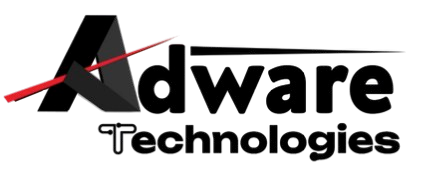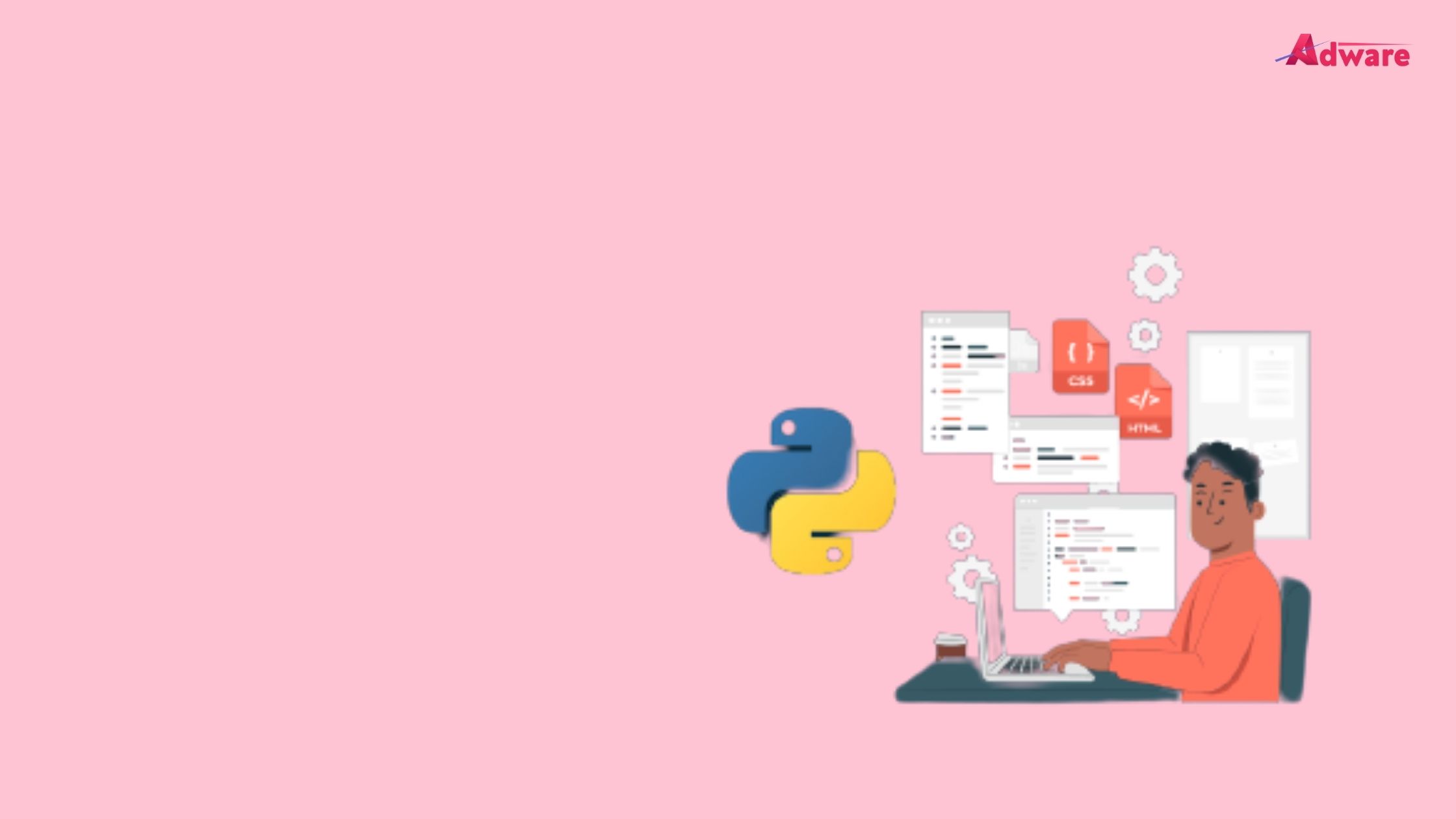Introduction to Python
Python is a prominent dynamic programming language that offers a rich assortment of GUI libraries, packages, and web frameworks, making it a versatile choice for developing efficient cross-platform applications. Python is particularly well-suited for rapid application development.
Hire Python Developers, Created in 1991 by Guido van Rossum, Python was initially designed as a general-purpose, high-level, and interpreted programming language with a focus on modularity and code readability. Over the course of its nearly 30-year history, Python has become one of the most widely used programming languages. Its simplicity and ease of understanding have contributed to its widespread adoption. Python is compatible with various operating systems such as Linux, Mac, Raspberry Pi, and Windows. It operates on an interpreter system, allowing code to be executed efficiently as soon as it is written. Python's development syntax is also known for its simplicity when compared to the syntax of other programming languages.
With a current popularity share of 31.73 percent among contemporary programming languages, Python's popularity continues to reach new heights.
Most-Used Languages by Developers
As per the latest developer survey by Stack Overflow, Python is the fourth most popular programming language
The Python language is not only free and open source but also easy to learn, placing a strong emphasis on the DRY (Don't Repeat Yourself) principle and code readability. Thanks to its high-level nature, dynamic typing, and interpreted approach, Python simplifies error debugging and facilitates the swift creation of application prototypes. These qualities make Python a standout choice as a coding language.
Can Python be used to build mobile applications?
Well, yes It has become possible to build mobile applications in Python due to the release of the Kivy framework (Python tool) in 2011.
It enables cross-platform development of the application for mobile devices and PC. Kivy framework makes use of a custom set of UI instruments that manage the same control elements on various platforms.
Is it possible to build native mobile applications in Python?
Yes, this is achievable using another Python tool called BeeWare. BeeWare employs a suite of tools that handle the native control elements of various platforms. This means that UI components like checkboxes and buttons provided by the target platform become the user interface controllers. Consequently, applications built with BeeWare will have a fully native look and feel when used on their respective platforms. With the BeeWare framework, it's possible to develop native mobile apps for both iOS and Android using Python.
Some Interesting Python Statistics
1. According to StackOverflow, Python is a fast-evolving programming language that can be used to solve a broad spectrum of issues. It has the capability to meet the requirements of most applications.
2. As per GitHub and Google Trends, Python is the most popular programming language in the year 2020, leaving behind the longstanding popularity of Java and JavaScript.
3. According to ‘The State of the Octoverse Report’ in 2021 by GitHub, Python was ranked the second most popular programming language.
4. The page for CPython by GitHub, which is the reference implementation of Python in C, has more than 38.7K stars and over 1500 contributors.
5. The IEEE survey suggests Python to be the top programming language amongst mobile app developers globally.
6. Going by the TIOBE Programming Community index released in July 2020, Python ranks third amongst the top 20 programming languages experienced developers use worldwide.
7. According to a survey by AIM, about 53.3% of data scientists choose Python language as it enables them to build data science skills and specific analytics capabilities.
8. At present, there are over 8.2 million Python developers globally and this number is going to only increase in the coming months.
Reasons Behind The Popularity of Python
The popularity of Python can be attributed to several key reasons:
Simplicity and Readability: Python's clean and straightforward syntax makes it easy to read and write code. This simplicity encourages new developers to pick it up quickly and allows experienced programmers to express their ideas more efficiently.
Open Source and Community Support: Python is an open-source language, meaning it's freely available for anyone to use, modify, and distribute. It has a vast and active community of developers who contribute to its growth and provide extensive support through libraries and frameworks.
Versatility: Python is a versatile language that can be used for a wide range of applications, including web development, data analysis, artificial intelligence, machine learning, scientific computing, and more. Its adaptability to various domains has led to its widespread adoption.
Cross-Platform Compatibility: Python is compatible with multiple operating systems, including Linux, macOS, Windows, and more. This cross-platform support ensures that Python applications can run on different environments without major modifications.
Rapid Development: Python's concise syntax and extensive standard libraries enable rapid application development. This is especially valuable in today's fast-paced software development environment.
Large Ecosystem: Python boasts a rich ecosystem of libraries, packages, and frameworks. These tools simplify various tasks and extend Python's capabilities in different domains, from web development (Django, Flask) to data science (NumPy, pandas) and machine learning (TensorFlow, PyTorch).
Community and Documentation: Python's strong community support ensures that developers can easily find answers to their questions and solutions to common problems. The availability of comprehensive documentation and tutorials contributes to its learnability.
Data Science and Machine Learning: Python is a top choice for data science and machine learning projects due to libraries like NumPy, pandas, sci-kit-learn, and the availability of deep learning frameworks like TensorFlow and PyTorch.
Job Opportunities: The demand for Python developers has increased significantly in recent years, making it a valuable skill in the job market. Many companies and industries use Python for various purposes, creating abundant career opportunities.
Educational Tool: Python is often used as the first programming language in education because of its simplicity and readability. This has led to a new generation of programmers with Python skills.
These factors, among others, have contributed to Python's remarkable popularity in the programming world, making it a go-to language for a wide range of applications and industries.
Popular Applications Built with Python
Python is a versatile programming language that has been used to create a wide range of popular applications across various domains. Here are some notable examples:
Web Development:
Django and Flask are popular Python web frameworks used to build web applications. Many websites, including Instagram and Pinterest, have components written in Python.
Scientific and Numeric Computing:
Python is widely used for scientific and numeric computing, with libraries like NumPy and SciPy. Researchers and scientists use Python for tasks like data analysis, simulations, and modeling.
Data Analysis and Visualization:
Pandas and Matplotlib, along with Jupyter notebooks, are essential tools for data analysis and visualization. Python is the language of choice for data scientists working with large datasets.
Machine Learning and Artificial Intelligence:
Python's popularity in machine learning is evident with libraries such as TensorFlow and PyTorch, which are used for deep learning and AI research. Many AI applications are powered by Python, including chatbots and recommendation systems.
Game Development:
Python is used for game development, with libraries like Pygame. Games such as "Civilization IV" and "Eve Online" have components written in Python.
Desktop Applications:
Python can be used to build cross-platform desktop applications with frameworks like PyQt and Tkinter. The Dropbox desktop client is written in Python.
Internet of Things (IoT):
Python's simplicity and versatility make it a suitable choice for IoT development. Raspberry Pi, a popular IoT platform, can be programmed using Python.
Web Scraping and Automation:
Python is often used for web scraping and automating repetitive tasks. Tools like Beautiful Soup and Selenium are commonly employed for this purpose.
Content Management Systems (CMS):
Some CMS platforms, like Plone and Mezzanine, are built using Python. These systems are used for website content management.
Network Programming and Cybersecurity:
Python is used for network scripting, penetration testing, and cybersecurity tasks. The Scapy library is a popular choice for network packet manipulation.
Finance and Trading:
Python is used in financial analysis and algorithmic trading. Libraries like QuantLib and Zipline are employed in the financial industry.
Natural Language Processing (NLP):
Python is widely used in NLP applications, including chatbots, sentiment analysis, and language translation. The NLTK and spaCy libraries are commonly used.
Healthcare and Bioinformatics:
Python is utilized in healthcare for tasks like medical data analysis and bioinformatics. The Biopython library is popular in this field.
These examples demonstrate Python's versatility and wide-ranging applications in various industries, making it a popular and powerful language for developers in different domains.
Top Python Frameworks for App Development
Python offers a variety of frameworks that simplify application development across different domains. Here are some of the top Python frameworks for app development:
Django:
Django is a high-level web framework known for its "batteries-included" philosophy, providing everything needed for web development. It emphasizes rapid development, security, and scalability, making it a popular choice for building web applications and content management systems.
Flask:
Flask is a micro web framework that offers a minimalistic approach to web development. It provides the essentials for creating web applications and allows developers to choose their preferred tools for other components, resulting in flexibility and simplicity.
Pyramid:
Pyramid is a versatile web framework that strikes a balance between simplicity and flexibility. It's suitable for small to large applications and follows a "use what you need" philosophy, allowing developers to build applications based on their specific requirements.
FastAPI:
FastAPI is a modern web framework designed for building APIs quickly and efficiently. It is known for its high performance and automatic generation of interactive API documentation. FastAPI is an excellent choice for creating RESTful and GraphQL APIs.
Tornado:
Tornado is an asynchronous networking library and web framework. It's ideal for building real-time web applications and services that require high concurrency and low latency. Tornado is often used in scenarios like chat applications and IoT.
Bottle:
Bottle is a lightweight and micro web framework designed for building small to medium-sized web applications. It has a minimal footprint and is known for its simplicity and ease of use.
CherryPy:
CherryPy is an object-oriented web framework that simplifies web application development. It provides a clean and intuitive API, allowing developers to build web applications with minimal effort.
Dash:
Dash is a Python framework for building interactive, web-based data visualization applications. It is built on top of Flask and React, making it an excellent choice for creating interactive data dashboards and visualizations.
Web2py:
Web2py is a full-stack web framework that emphasizes ease of use, security, and deployment. It includes an integrated development environment and supports multiple databases, making it suitable for rapid application development.
Kivy:
Kivy is an open-source Python framework for developing multi-touch applications. It's mainly used for creating cross-platform mobile applications, making it an excellent choice for mobile app development.
Cubeware:
Cubeware is a framework for creating analytical web applications and dashboards. It is designed for data analysis and reporting, making it a valuable tool for business intelligence applications.
These Python frameworks cater to a wide range of application development needs, from web applications and APIs to mobile apps and data visualization tools. The choice of framework depends on the specific requirements and preferences of the development project.
What kinds of applications can be built using the Python Framework
Python frameworks are versatile and can be used to build a wide variety of applications across different domains. Here are some types of applications that can be effectively developed using Python frameworks:
Web Applications:
Python frameworks like Django, Flask, Pyramid, and FastAPI are commonly used to create web applications, including e-commerce websites, content management systems, social media platforms, and more.
APIs (Application Programming Interfaces):
FastAPI, Flask, and Django are suitable for building RESTful and GraphQL APIs that enable communication between different software systems and services.
Mobile Applications:
Python frameworks such as Kivy and BeeWare allow developers to create cross-platform mobile applications for both iOS and Android, making it easier to target a broad user base.
Data Analytics and Visualization:
Python frameworks, along with libraries like NumPy, pandas, and Matplotlib, are used for data analysis, reporting, and visualization applications. This is crucial in domains like finance, healthcare, and business intelligence.
Machine Learning and Artificial Intelligence:
Python frameworks like TensorFlow and PyTorch are pivotal for developing machine learning models and AI applications for tasks such as image recognition, natural language processing, and recommendation systems.
Game Development:
Pygame is a popular framework for creating 2D games, and Python can be used for game logic and scripting in combination with game engines like Unity3D.
IoT (Internet of Things):
Python frameworks are well-suited for IoT projects, enabling developers to build applications that interact with sensors, devices, and data streams.
Desktop Applications:
Python, with frameworks like PyQt and Tkinter, allows for the development of cross-platform desktop applications with graphical user interfaces.
Scientific Computing and Simulations:
Python is widely used for scientific and engineering simulations, as well as for applications in fields such as physics, chemistry, and biology.
Content Management Systems (CMS):
Some Python frameworks like Django and Plone are used to build custom content management systems for websites and digital content.
Education and E-Learning:
Python frameworks are used to create educational software, learning management systems, and interactive e-learning platforms.
Business and Finance:
Python is popular in the financial sector for algorithmic trading, risk analysis, and financial modeling applications.
Healthcare and Bioinformatics:
Python is used for medical data analysis, healthcare management systems, and bioinformatics applications.
Geospatial and Mapping:
Python frameworks, combined with libraries like GeoDjango and Folium, are used to develop geospatial applications for mapping, GIS (Geographic Information Systems), and location-based services.
Chatbots and Natural Language Processing (NLP):
Python is frequently used to build chatbots and NLP applications for tasks like language translation, sentiment analysis, and virtual assistants.
Python's extensive library ecosystem, along with these frameworks, makes it a versatile language for addressing a wide array of application development needs in different industries and sectors.
Roadmap for Python Web Development
Let’s move on to the process and tools we must understand before tackling the field of web development:
#1 Web Page Design
#2 WebPage Behavior
#3 DOM Direction for Effective WebPages
#4 Front End Framework
#5 Programming Language
#6 Web Framework
Future of Python
Whether you're a Python programmer or a Ruby on Rails developer, it's evident that Python has a promising future. Some experts even predict that it will reach the same level of prominence as C.
It may be hard to fathom, but organizations that offer full-stack application development services are recognizing Python's significance. One of the key driving factors behind its rising popularity is its role in the realm of data science.
Python has become the go-to toolbox for creating AI and ML (Artificial Intelligence and Machine Learning) applications. Data scientists find Python exceptionally useful for analyzing datasets through its myriad of algorithms. The language provides a vast array of libraries for various AI-related tasks, including statistical computation, data analysis, and more. Some notable Python-compatible libraries include GraphLab Create, PyBrain, PyAnn, Query, MDP ToolKit, and PyBrain.
In addition to data science, Python has made its mark in the field of networking. Libraries like Ansible, Pyeapi, and Netmiko support network configuration, making it easier to set up and manage routers. Python's utility extends beyond application development, and it's now showing its potential in various domains.
Python's versatility is still being explored, as its strong foundation in application development has opened doors to a multitude of other possibilities. The language's future looks promising, with a growing community and continuous innovation.
Conclusion:
Python app development is poised to play a significant role in the years ahead, both in enterprise solutions and product development. Python has reached new heights, establishing itself as a versatile language that's not only accessible to beginners but also incredibly powerful in the hands of experts. Major companies, including Google, have recognized its potential and adopted Python as a primary language.
Python provides substantial benefits whether you're working at a low or high level. You can build web applications using practical Python frameworks, or leverage its capabilities in data science and machine learning to enhance your company's strategies and outcomes.
If you have an idea you want to bring to life, consider partnering with a reputable Python app development company. With their expertise in Python app development services, they can help you create advanced, robust, and scalable applications, empowering you to thrive in the ever-evolving digital landscape. Python's versatility and capabilities make it a valuable choice for a wide range of projects and applications.
For more information, please Contact us now!




Comments (0)